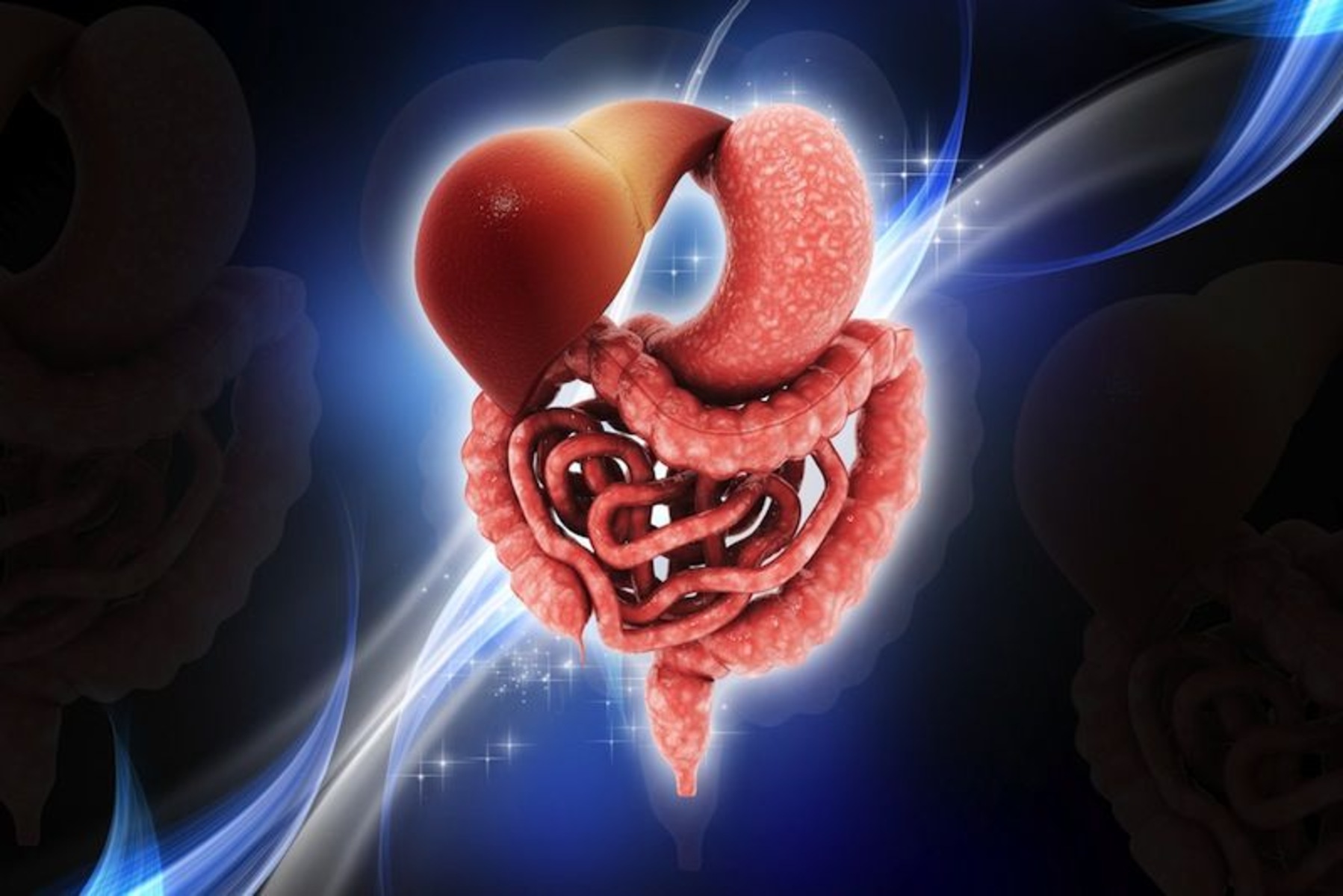
The digestive system, also known as the gastrointestinal system, plays a crucial role in our daily lives and overall health. It is responsible for breaking down the food we eat into nutrients that the body can absorb and use for energy, growth, and repair. With its intricate network of organs and processes, the digestive system is truly a fascinating and essential system of our body.
In this article, we will explore 19 astounding facts about the digestive system that will not only increase your knowledge but also leave you in awe of the incredible workings of your own body. From the length of the digestive tract to the staggering number of bacteria residing within it, get ready to delve into the captivating world of digestion and discover just how amazing our digestive system truly is!
Key Takeaways:
- 1. Your digestive system starts working as soon as you take a bite, with saliva breaking down food in your mouth. It’s like a food factory that begins operating the moment you start eating!
- 2. The digestive system is like a bustling city, with different organs playing important roles in breaking down food and absorbing nutrients. It’s a team effort to keep your body running smoothly!
The digestive system starts in your mouth!
Did you know that the process of digestion begins as soon as you take a bite? Chewing your food breaks it down into smaller pieces and mixes it with saliva, which contains enzymes that start the digestion of carbohydrates.
Your digestive system is home to trillions of bacteria.
The human gut contains a complex ecosystem of microorganisms, known as the gut microbiota. These bacteria play a vital role in digestion, nutrient absorption, and even immune function.
The small intestine is surprisingly long.
Stretching from the stomach to the large intestine, the small intestine measures about 20 feet long in adults. It is responsible for the majority of nutrient absorption in the digestive process.
The liver is the largest internal organ in your body.
Weighing about three pounds, the liver is not only responsible for producing bile, which helps break down fats, but it also plays a crucial role in detoxifying harmful substances in the body.
The stomach produces hydrochloric acid.
When you eat a meal, the stomach secretes hydrochloric acid to help break down food and kill bacteria. It is one of the most acidic environments in the body, with a pH level of 1 to 2.
Your digestive system contains its own nervous system.
The enteric nervous system, also known as the “second brain,” controls the movement of food through the digestive tract. It operates independently of the central nervous system and helps regulate digestion.
The large intestine is home to beneficial bacteria.
The large intestine, also known as the colon, is where water is absorbed and feces are formed. It is also a habitat for beneficial bacteria, such as bifidobacteria and lactobacilli, which aid in digestion and help maintain gut health.
The pancreas plays a crucial role in digestion.
The pancreas produces enzymes that help break down carbohydrates, proteins, and fats in the small intestine. It also releases insulin and glucagon, which regulate blood sugar levels.
Your stomach lining is replaced every few days.
The cells lining the stomach are constantly being regenerated to protect the organ from the corrosive effects of stomach acid. This rapid cell turnover ensures the health and integrity of the stomach lining.
The small intestine has finger-like projections called villi.
The small intestine’s surface area is greatly increased by numerous tiny projections called villi. These finger-like structures absorb nutrients from digested food and transport them into the bloodstream.
The gallbladder stores and concentrates bile.
The gallbladder assists in the digestion of fats by storing and concentrating bile, a substance produced by the liver. When you eat a fatty meal, the gallbladder releases bile into the small intestine.
Saliva contains an enzyme called amylase.
Amylase, found in saliva, starts the digestion of carbohydrates by breaking down complex sugars into simpler forms. This process begins in the mouth and continues as food moves through the digestive system.
The esophagus uses peristalsis to move food to the stomach.
Peristalsis is a series of muscle contractions that push food downward from the esophagus to the stomach. This rhythmic motion allows for smooth and efficient movement of food through the digestive system.
The appendix isn’t entirely useless.
Although the function of the appendix is still not fully understood, recent research suggests that it may serve as a reservoir for beneficial bacteria or play a role in immune system functioning.
The digestive system can be affected by stress.
Stress can cause the digestive system to slow down or speed up, leading to changes in bowel movements and digestion. Long-term stress can also contribute to digestive disorders such as irritable bowel syndrome (IBS).
The stomach can expand to accommodate large meals.
Under normal circumstances, the empty stomach has a volume of about 50 milliliters. However, it can expand to hold up to 2-4 liters of food and liquid after a large meal!
Digestion takes approximately 24 to 72 hours.
The time it takes for food to travel through the digestive system varies, but on average, it takes between 24 to 72 hours from the moment of ingestion to excretion.
Proteins are digested in multiple stages.
The digestion of proteins begins in the stomach, where they are broken down into smaller polypeptides. The process continues in the small intestine, where enzymes called proteases further break down the polypeptides into individual amino acids.
The digestive system is highly adaptable.
The digestive system is capable of adapting to different diets and food types. For example, individuals who consume a plant-based diet typically have longer intestines to allow for more efficient absorption of nutrients.
Conclusion
The digestive system is truly a remarkable and intricate system in our bodies. It plays a crucial role in breaking down food, extracting nutrients, and eliminating waste. From the moment we take a bite to the final processing of waste, the digestive system ensures that our bodies receive the necessary energy and nutrients to function optimally.
Through its various organs and processes, the digestive system demonstrates the harmonious coordination of different components working together. From the mechanical grinding in the mouth to the chemical breakdown in the stomach, every step is essential for efficient digestion.
Understanding the digestive system is not only fascinating but also empowers us to make better choices when it comes to our overall health and well-being. By adopting a balanced and nutritious diet, maintaining a healthy lifestyle, and seeking professional advice when needed, we can support the proper functioning of our digestive system and improve our overall health.
FAQs
1. What is the function of the digestive system?
The digestive system is responsible for breaking down food into smaller molecules, absorbing nutrients and water, and eliminating waste from the body.
2. What are the main organs of the digestive system?
The main organs of the digestive system include the mouth, esophagus, stomach, small intestine, large intestine, liver, gallbladder, and pancreas.
3. How long does it take for food to pass through the digestive system?
The time it takes for food to pass through the digestive system varies, but on average, it takes about 24 to 72 hours from ingestion to elimination.
4. What happens to food in the stomach?
In the stomach, food is mixed with digestive juices and undergoes mechanical and chemical digestion. It is turned into a semi-liquid mixture called chyme before being released into the small intestine.
5. How does the liver contribute to digestion?
The liver produces bile, which helps in the breakdown and absorption of fats. It also plays a crucial role in detoxification and the storage of important nutrients.
6. What are some common digestive disorders?
Common digestive disorders include acid reflux, gastritis, ulcers, constipation, diarrhea, irritable bowel syndrome (IBS), and inflammatory bowel disease (IBD).
7. How can I maintain a healthy digestive system?
Maintaining a healthy digestive system involves eating a balanced diet rich in fiber, staying hydrated, exercising regularly, managing stress, and avoiding smoking and excessive alcohol consumption.
8. When should I see a doctor regarding digestive problems?
If you experience persistent or severe digestive symptoms such as abdominal pain, bloating, prolonged diarrhea or constipation, unexplained weight loss, or blood in your stool, it is essential to consult a healthcare professional for proper diagnosis and treatment.
Was this page helpful?
Our commitment to delivering trustworthy and engaging content is at the heart of what we do. Each fact on our site is contributed by real users like you, bringing a wealth of diverse insights and information. To ensure the highest standards of accuracy and reliability, our dedicated editors meticulously review each submission. This process guarantees that the facts we share are not only fascinating but also credible. Trust in our commitment to quality and authenticity as you explore and learn with us.


